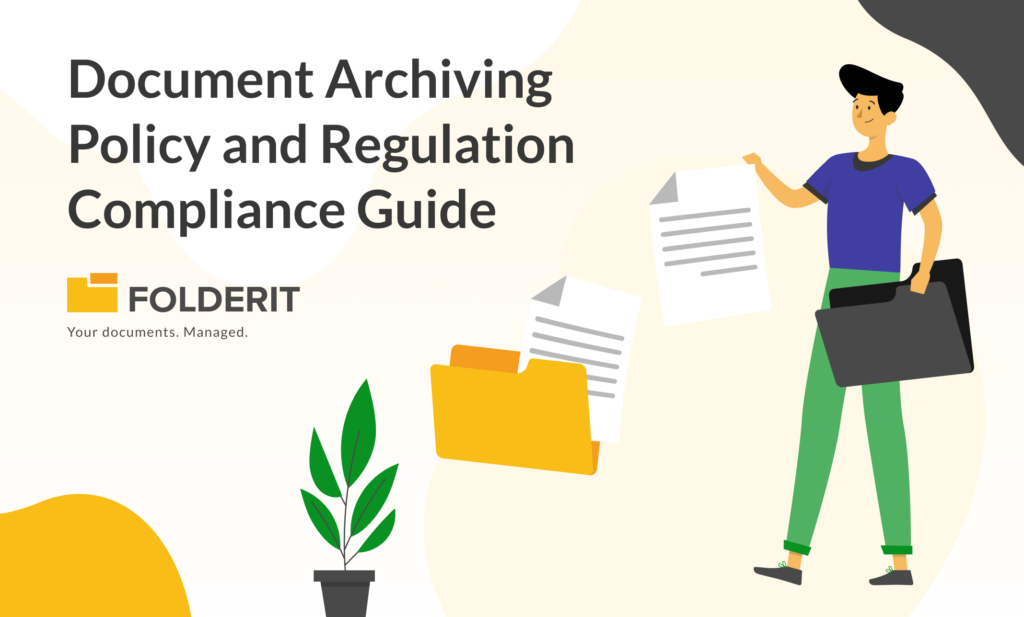When you think of any important process in any organization — irrespective of scale of operations — you can pretty guarantee it involves documents that are an integral part of their operations. This can be related to marketing, sales, services, production, and the list goes on. Now the question becomes, how should you manage and control these throughout their lifecycle?
This is why something called Document Control is so important. It ensures that documents are created, approved, updated, and accessed in a structured, secure, and consistent way, ensuring that the correct version of the document is available to the right person at the right time.
What is Document Control?
Broadly speaking document control is the systematic organized management of documents in an organization. At a fundamental level, document control is about maintaining the integrity, consistency, reliability, and accuracy of documents throughout their lifecycle. This process is critical in preventing errors, protecting sensitive information, and ensuring that only the latest versions of documents are in use.
In controlled environments like document management systems (DMS), documents such as contracts, policies, technical drawings, and patient records must follow specific guidelines to avoid mistakes that could lead to non-compliance, financial loss, or reputational damage.
How Document Control Works
- Document Creation — The first step of anything is that you have to do it, the same is true here. The process begins with you creating a document. Now in an organization, this document should follow whatever SOPs you have in place to assure consistency and accuracy. Some organizations use pre-defined templates for documents, such as contacts, NDAs, basic forms, etc. This standardization is important at this stage because it sets the tone and foundation for the entire document lifecycle
- Review and Approval — Once the documents are created they must go through a review and approval process to verify their accuracy and relevance. This involves multiple stakeholders and ensures thorough scrutiny of said document. The review process usually involves checking for technical accuracy, compliance, and of course alignment with the organizational policies.
- Version Control — Each document that is created is tracked as it goes through its lifecycle via version control, and most importantly it helps to maintain an audit trail of changes of that document. Managing document versions ensures that the most up-to-date version of that document is always in usage, preventing potential confusion between outdated and updated versions.
- Access Management — Only authorized users are given access to the document, and based on relevance level access level required, whether its access to view, edit, or distribute the documents. For this its imperative to ensure that a reliable system is in place to grant document access and for retrieving documents when needed. For this we recommend using a reliable and secure electronic document management system which is also user-friendly (of course we’ll plug in our own DMS, Foderit! We wrote the playbook on user-friendly document management).
- Distribution — This ones pretty straightforward, documents are made sure to be distributed to the right people at the right time often through automated workflows, and it is made sure that they have access to the correct version of the document and the necessary information there in.
- Security — Since most organizations deal with sensitive data, ranging from legal, healthcare, to intellectual property data, document control establishes important security protocols that protect all this information from authorized access.
- Retention, Archiving, and Disposal — Organizational policies (usually for compliance purposes) dictate how long the documents will be retained for and when they need to be archived or disposed off. Proper archiving ensures that data is preserved for future reference. Also, using automated disposal ensures that outdated documents do not clutter and clog the system or fill up unnecessary folders, this ensures compliance with organizational regulations that govern document archiving and disposal.
Why Is Document Control Important?
Across the board companies create and deal with a high volume of documents daily. Proper document control makes sure that there is always a single master version of each document, that has a complete version history.
Additionally, any document that can affect the quality of products or services, such as policies, procedures, and specifications, needs to be controlled. Without proper control systems in place, organizations face disorganization, dealing with outdated information, and the risk of document lose, which leads to inefficiencies and compliance issues.
Compliant and proper document control safeguards against these risks by maintaining accuracy, security, and consistency across all organizational operations.
How Folderit Simplifies Document Control
Folderit, provides companies and organizations with powerful document control features that are specifically designed to make compliance and internal regulation a breeze.
Here’s how:
- Version Control: Folderit automatically tracks all changes made to documents, making sure that users have access to the latest version with a complete history of edits.
- Access Permissions: Administrators can set role-based permissions to control who can view, edit, or share documents. Ensuring that sensitive information is kept secure and only authorized users can make changes.
- Automated Workflows: This one’s our favorite, users can create approval workflows that automatically route documents to the relevant people for review, approval, or signature.
- Advanced Search Functionality (OCR): Our advanced search feature (OCR) makes locating files extremely easy, allowing you to search by keywords, metadata, or content within documents (yes, even if you forget everything else, you can look for the document by writing content that was inside the document).
- Compliance Support: Our DMS is built for organization compliance, helping you keep up with industry regulations by offering features like audit trails, secure storage, and document retention policies.
- Cloud-Based Storage: Folderit’s cloud storage means that controlled documents are accessible from anywhere, on anything, at any time (24/7 uptime). Which means remote work is easier, and teams can get access to all the information they need no matter where they are.
Document control is pivotal for digital operations, helping organizations be compliance, mitigate risks, and maintain operational efficiency. By utilizing an advanced DMS like Folderit, companies can automate and streamline all document control processes, allowing for accuracy, security, and accessibility to the right people at the right time.



